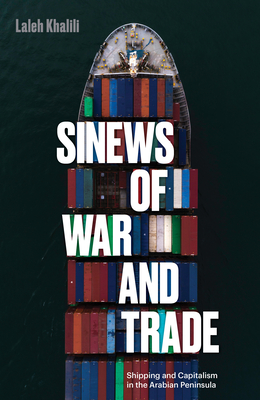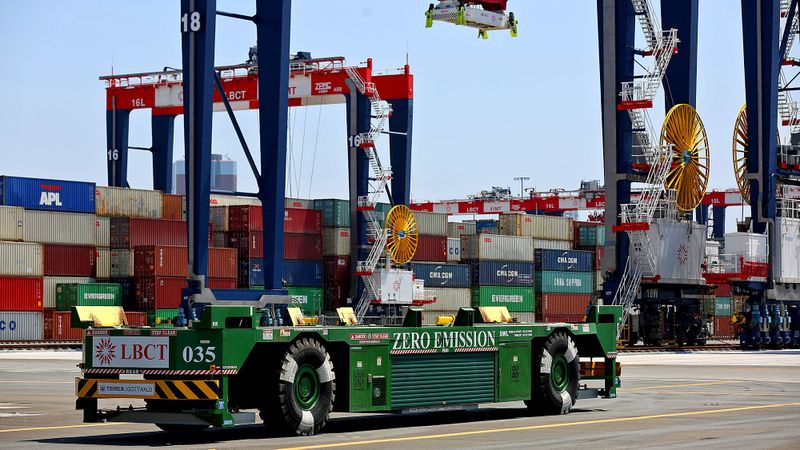Simanaitis Says
On cars, old, new and future; science & technology; vintage airplanes, computer flight simulation of them; Sherlockiana; our English language; travel; and other stuff
SHIPPING TIDBITS
THE ARTICLE “Gargantuanisation,” by John Lancaster, in the London Review of Books, April 22, 2021, is a review of Laleh Khalili’s Sinews of War and Trade: Shipping and Capitalism in the Arabian Peninsula.

Khalili’s book was written prior to the Ever Given’s jamming of the Suez Canal, but Lancaster’s review touches on this recent news as well as the history of this particularly important transportation route between the Mediterranean and the Red Sea. Here are several tidbits.

Shipping and the Internet. Lancaster observes that international shipping “is the physical equivalent of the Internet, the other industry which makes globalisation possible. The Internet abolishes national boundaries for information, news, data; shipping abolishes these boundaries for physical goods.”
Like the Internet, Lancaster says, “The main way it does this is by being almost incomprehensibly cheap…. This has had the effect of abolishing geography and location as an economic factor.”
Where to Make It? There’s no need to locate manufacturing close to consumers: “Instead,” Lancaster says, “you make whatever it is where it’s cheapest, and ship it to them instead.”
As one of his sources cites, “… if you’re having a sweater shipped from the other side of the planet, the cost of shipping adds just a cent to the price. Another way of putting it would be to say that shipping is, in practice, free.”
Except for During Wartime. International shipping, of course, depends upon free and safe access to sea lanes. This was addressed here at SimanaitisSays in “On Straits and Narrows.”
Even a conflict as brief as the Arab-Israeli Six-Day War, June 5–10, 1967, had long-ranging implications.
Six Days and Eight Years. At the start of the Six-Day War, fourteen ships were caught in the Suez Canal. For reasons of blockages and politics, they remained there for eight years. The group became known as the Yellow Fleet because, as Wikipedia notes, desert sand eventually coated them.
(Another tidbit from Lancester’s article: The world’s most mined commodity in shipping is sand.)
“The crews were allowed to rotate,” Lancaster writes, “They formed the Great Bitter Lake Association to manage their pooled resources and lively social lives. They issued stamps and had their own version of the Olympics. By the time it reopened, both the world and the shipping industry had permanently changed.”
Marcus Samuel, of a Seashell Trading Family. “A major technological breakthrough in shipping,” Lancaster notes, “was the invention of an Iraqi Jew born in Whitechapel, whose family background was in trading seashells, and who went on to become lord mayor of London: Marcus Samuel.”
Lancaster says that in the late 1800s Samuel “saw how slow and laborious it was to load barrels of oil onto ships. (The legacy of this is oil being priced in barrels.) Samuel realised that it would be much more efficient if the ship itself was a single big tank.”
“This invention, the oil tanker,” Lancaster continues, “led to the modern oil transportation industry, and to the foundation of Samuel’s new firm, whose name nodded at the old family business….”
The “Shell” Transport and Trading Company (quotation marks part of its legal name) was founded in 1897.

The Container Vessel. Lancaster observes, “Containers are the force which has driven the cost of shipping down, and then further down, and then down so low that it has in effect abolished itself as an economic factor.”
“The remarkable thing about the story of the container,” Lancaster writes, “is that it is such a simple idea that almost anyone could have had it – anyone who has ever tidied up children’s toys, for instance. The idea is that stuff is more manageable if you shove it into a box. That’s it.”

Lancaster writes, “Ships are unloaded now in a matter of hours, with the order determined by algorithms. Nobody knows or cares what’s in the boxes: the crew’s manifest is concerned only with items that are refrigerated or dangerous.”
As noted here at SimanaitisSays, the loading and unloading of these containers has become increasingly automated and efficient, though not without labor controversy.

Conclusion. Lancaster sums up: “Shipping is a modern miracle of efficiency, interconnection and technology. It might also be the definitive example of modern capitalism, at the moment of its peak supremacy over labour. George [Rose George, author of 90 Percent of Everything, 2013] quotes a schoolchild’s prayer, written on the wall of the library in the Felixstowe Seafarers’ Centre: ‘Make all the people on the ship safe so we can have all the food from the ship that the seamen bring us. If other countries were not so nice, we wouldn’t have so much food. Thank you. Amen.’ ” ds
© Dennis Simanaitis, SimanaitisSays.com, 2021
Related
3 comments on “SHIPPING TIDBITS”
Leave a reply to Jack Albrecht Cancel reply
This site uses Akismet to reduce spam. Learn how your comment data is processed.
Information
This entry was posted on May 11, 2021 by simanaitissays in Sci-Tech and tagged "Gargantuanisation" John Lancaster "London Review of Books", "Sinews of War and Trade: Shipping and Capitalism in the Arabian Peninsula" Laleh Khalili, 14 ships stranded in Suez Canal for 8 years, Arab-Israeli Six-Day War closed Suez Canal for 8 years, container ship: put stuff in boxes, Marcus Samuel "Shell" Transport and Trading 1897, Marcus Samuel oil tanker (not just ship carrying oil barrels), shipping: physical goods Internet: information, shipping: so cheap to be insignificant in cost of object shipped.Shortlink
https://wp.me/p2ETap-bQWCategories
Recent Posts
Archives
- February 2026
- January 2026
- December 2025
- November 2025
- October 2025
- September 2025
- August 2025
- July 2025
- June 2025
- May 2025
- April 2025
- March 2025
- February 2025
- January 2025
- December 2024
- November 2024
- October 2024
- September 2024
- August 2024
- July 2024
- June 2024
- May 2024
- April 2024
- March 2024
- February 2024
- January 2024
- December 2023
- November 2023
- October 2023
- September 2023
- August 2023
- July 2023
- June 2023
- May 2023
- April 2023
- March 2023
- February 2023
- January 2023
- December 2022
- November 2022
- October 2022
- September 2022
- August 2022
- July 2022
- June 2022
- May 2022
- April 2022
- March 2022
- February 2022
- January 2022
- December 2021
- November 2021
- October 2021
- September 2021
- August 2021
- July 2021
- June 2021
- May 2021
- April 2021
- March 2021
- February 2021
- January 2021
- December 2020
- November 2020
- October 2020
- September 2020
- August 2020
- July 2020
- June 2020
- May 2020
- April 2020
- March 2020
- February 2020
- January 2020
- December 2019
- November 2019
- October 2019
- September 2019
- August 2019
- July 2019
- June 2019
- May 2019
- April 2019
- March 2019
- February 2019
- January 2019
- December 2018
- November 2018
- October 2018
- September 2018
- August 2018
- July 2018
- June 2018
- May 2018
- April 2018
- March 2018
- February 2018
- January 2018
- December 2017
- November 2017
- October 2017
- September 2017
- August 2017
- July 2017
- June 2017
- May 2017
- April 2017
- March 2017
- February 2017
- January 2017
- December 2016
- November 2016
- October 2016
- September 2016
- August 2016
- July 2016
- June 2016
- May 2016
- April 2016
- March 2016
- February 2016
- January 2016
- December 2015
- November 2015
- October 2015
- September 2015
- August 2015
- July 2015
- June 2015
- May 2015
- April 2015
- March 2015
- February 2015
- January 2015
- December 2014
- November 2014
- October 2014
- September 2014
- August 2014
- July 2014
- June 2014
- May 2014
- April 2014
- March 2014
- February 2014
- January 2014
- December 2013
- November 2013
- October 2013
- September 2013
- August 2013
- July 2013
- June 2013
- May 2013
- April 2013
- March 2013
- February 2013
- January 2013
- December 2012
- November 2012
- October 2012
- September 2012
- August 2012

Another great read — thanks, Dennis! The counterpoint might be historian and journalist Gwynne Dyer’s recent column “Shipping: Worse Than Aviation”
https://gwynnedyer.com/2021/shipping-worse-than-aviation/
Thanks, Andrew, for your kind words. And thanks too for the counterpoint.
Of course, the shipping is not “free.” The problem is that the massive amount of pollution produced by international shipping is not added to the cost of goods.